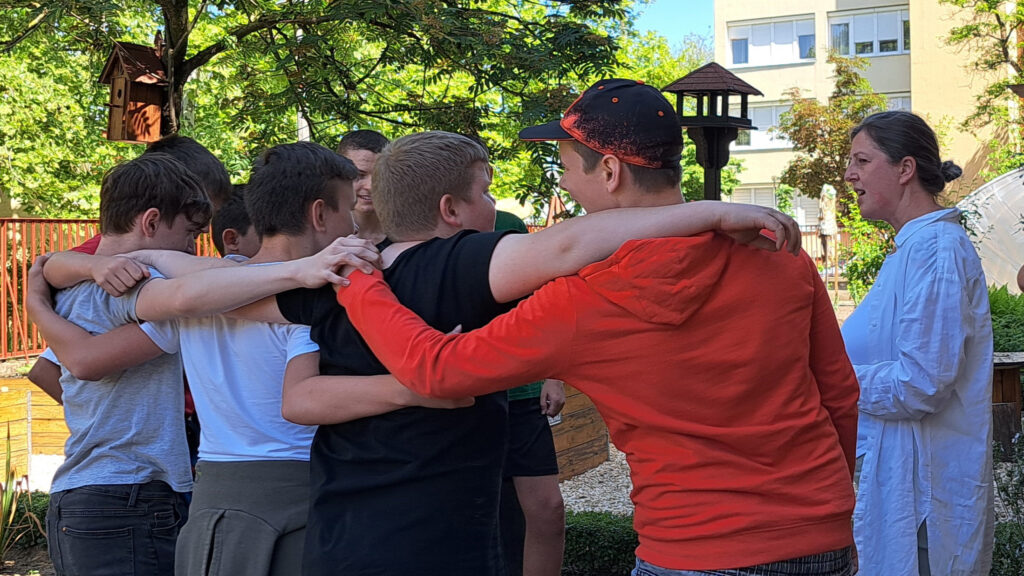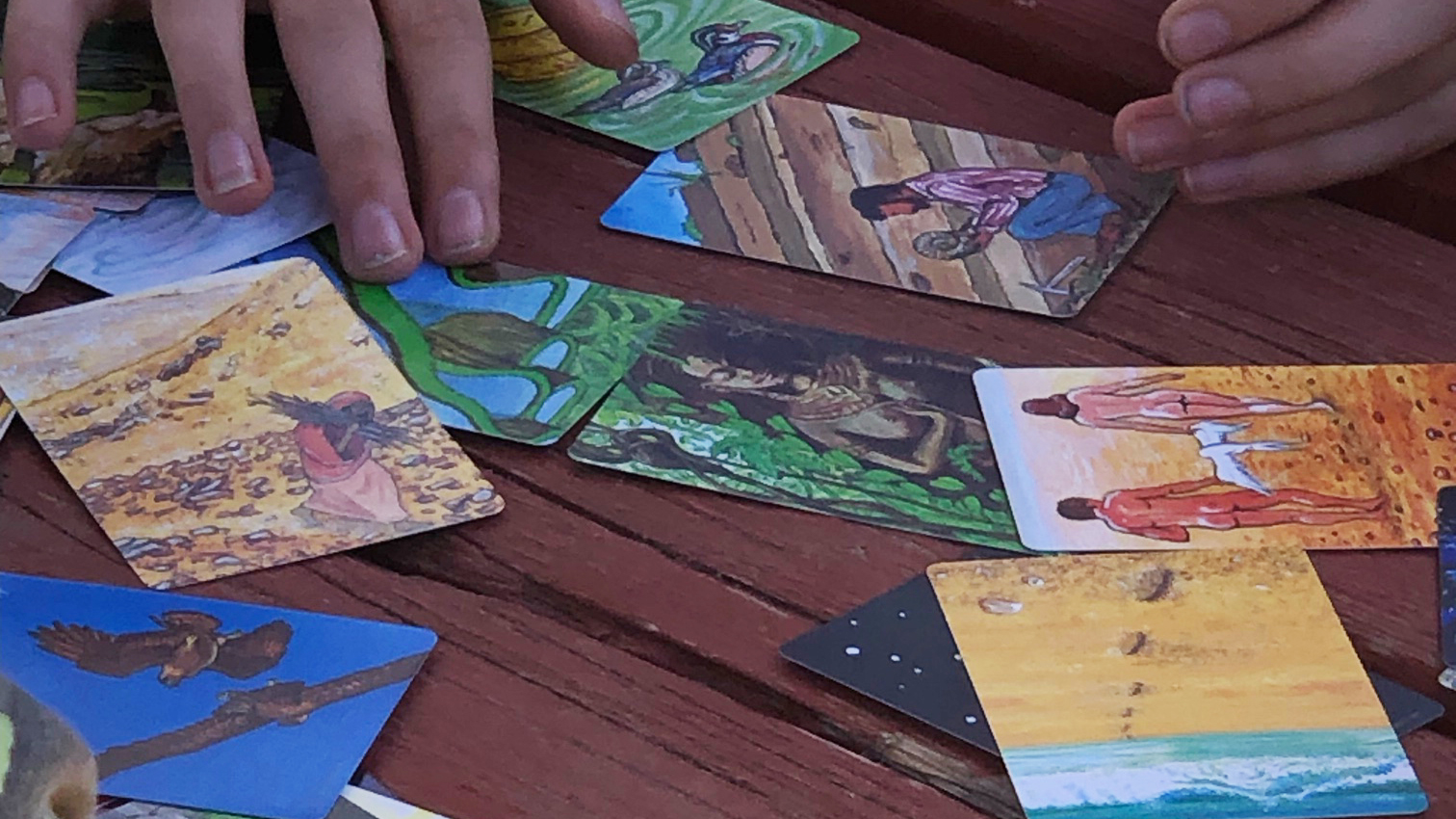As part of the PLANET4B project, this spring semester we began our collaboration with two schools to explore the transformative potential of school gardens and other experiential learning methods. Our preliminary findings highlight how these methods can enhance students’ cognitive skills and deepen their connection with nature. Sharing these results at three international conferences, we emphasized the need for innovative educational approaches and educational policy reforms to foster a
sustainable future.
Key Lessons from the Field
Intense months are behind us. In the spring semester, we collaborated with a primary school in Eastern Hungary and a secondary school in the Budapest agglomeration. Besides participant observation in the school gardens, we offered an interactive biodiversity class for primary school students and a participatory theatre play – developed by Káva Theatre and WWF Hungary – for secondary school students, followed by a debriefing session. Additionally, we invited students to visualise their relationship with nature and each other in the garden through a photovoice study.
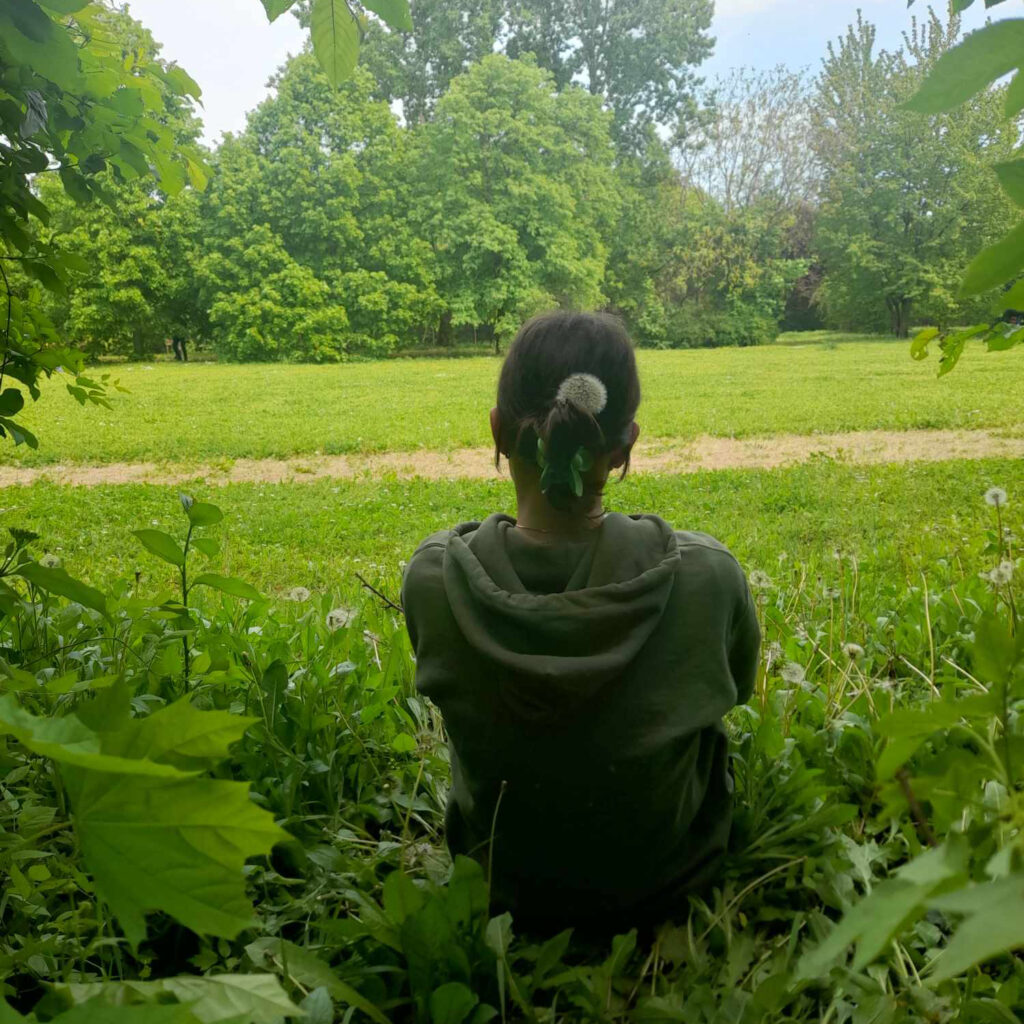
Picture by a student who participated in the photovoice study, featuring her relationship to nature
Our preliminary results suggest that participatory teaching methods can positively influence students’ cognitive skills and strengthen their relationships with nature. By engaging in various school gardening activities such as learning, working, or contemplation, students can develop a more nuanced understanding of their surroundings. The dominant instrumental approach to nature can open up towards more relational values. However, these transformations mostly remain at the individual and organisational level, as – according to expert interviews and workshops with members of our stakeholder board – the broader policy environment limits systemic change.
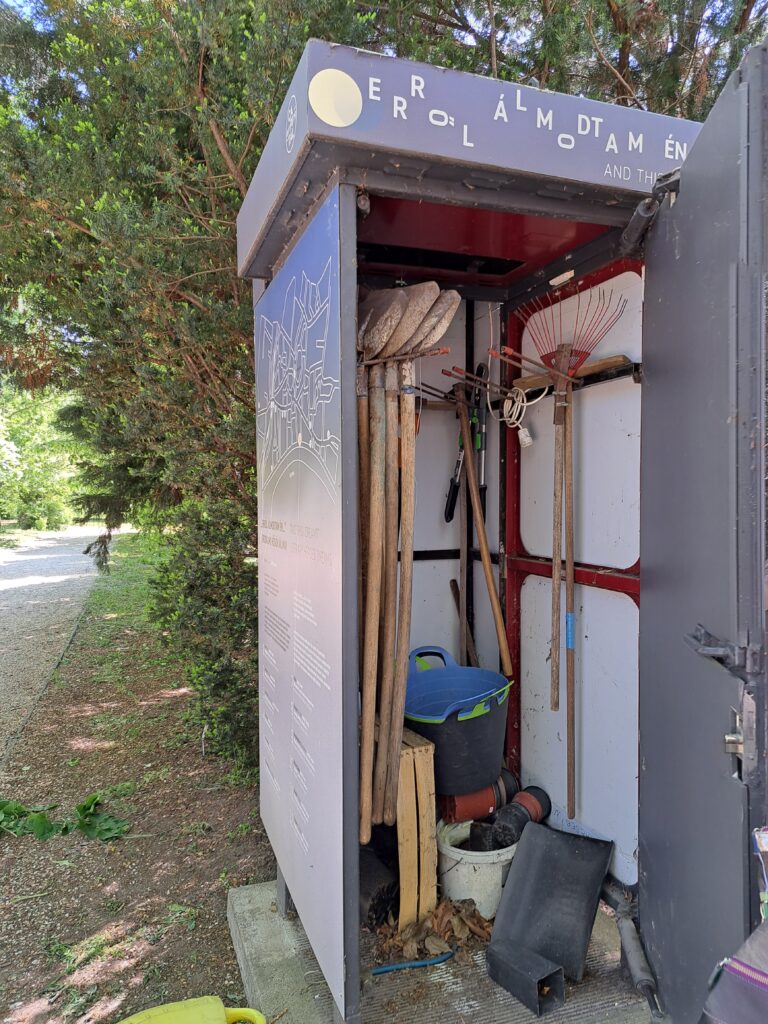
Spatial transformation in the schoolyard
Harvesting Feedback from Scientific and Professional Communities
Right after the spring semester – and our fieldwork – ended, we travelled across Europe to share some of these findings with different audiences. On June 19th, 2024, Eszter Kelemen presented at the 10th International Degrowth Conference and the 15th Conference of the ESEE at the Universidade de Vigo in Pontevedra. The theme was ‘Science, Technology, and Innovation beyond Growth: Cultivating Collective Creativity for a Sustainable Future’. Our presentation, ‘Fostering Relational Values through Biodiversity Education’, explored whether transformative change can be enacted via schools.
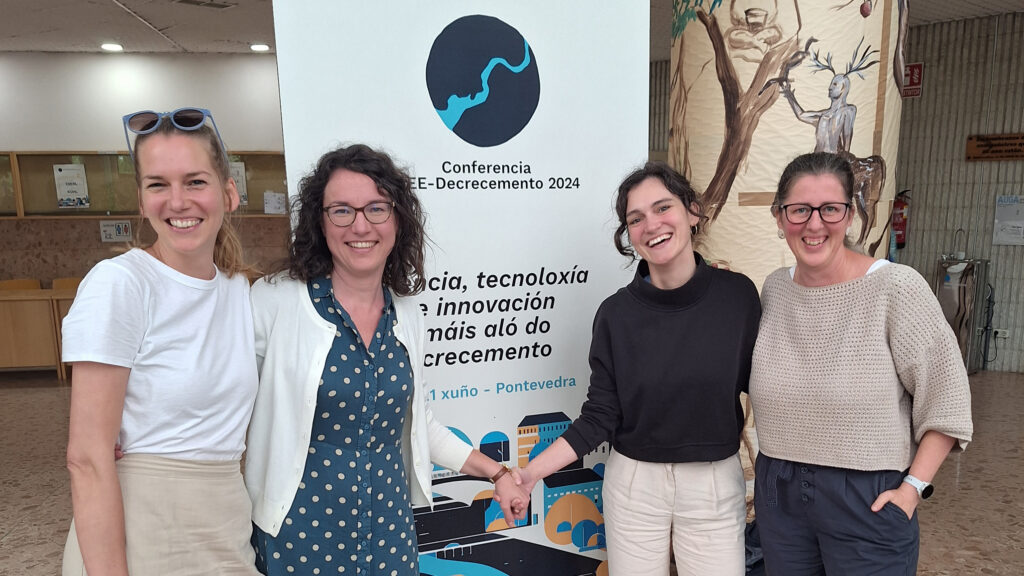
ESSRG researchers at the ESEE-Degrowth Conference in Pontevedra
On July 2nd, 2024, Karmen Czett presented at the IAPS Conference at the Universitat de Barcelona, focusing on ‘Transformative Pathways in Environmental Values and Attitudes’. This conference delved into the complexities of people’s relationships with the environment, emphasising the need for a multidisciplinary approach to address sustainability challenges. Our presentation assessed the impact of participatory teaching methods in Hungarian biodiversity education.
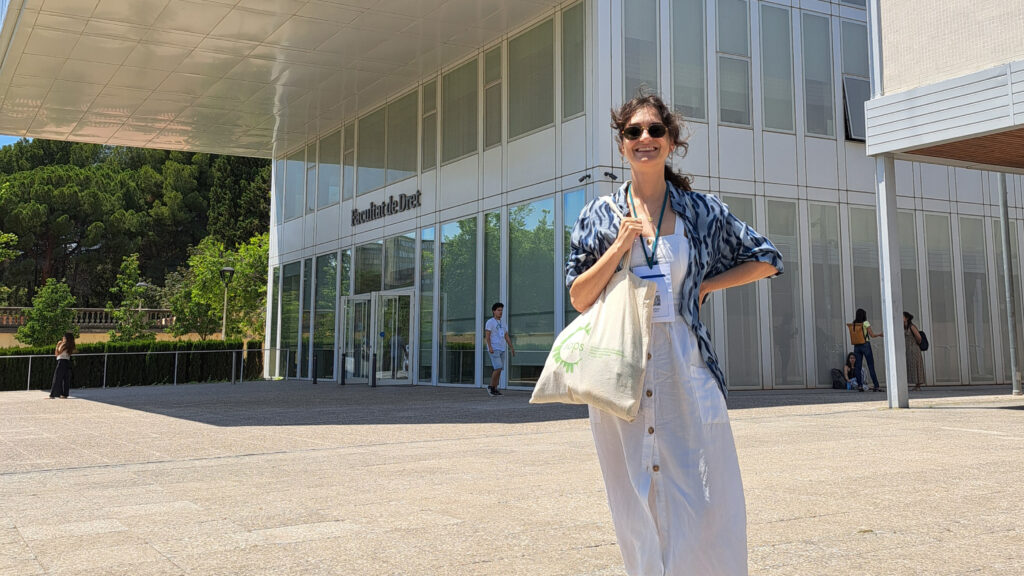
Karmen Czett at the IAPS Conference in front of Universitat de Barcelona
Finally, on July 4th, 2024, Eszter Kelemen gave a lecture at the 2nd ‘Caring for Creation’ Summer School, organised by Péter Pázmány University in Esztergom, Hungary. Roughly 80 participants gathered from primary and secondary schools across the country to learn about and practice nature-centred teaching and living. The presentation shared best practices we identified during the spring semester in our partner schools, and the follow-up discussion focused on diverse ways of achieving change in the values and behaviour of children.
Concluding Thoughts and Insights
In the past few months, we observed that participatory and experiential teaching methods can significantly impact individual attitudes and values, as well as bring about positive changes at the organisational level. However, systemic challenges, such as rigid educational structures and policy constraints, limit the broader transformative potential of these methods.
These insights highlight the importance of supporting innovative educational approaches and the need for policy reforms to facilitate more flexible and creative teaching environments. As we continue our research under the PLANET4B project, we remain committed to exploring ways to overcome these challenges and contribute to a more sustainable and environmentally conscious future for the next generation.
